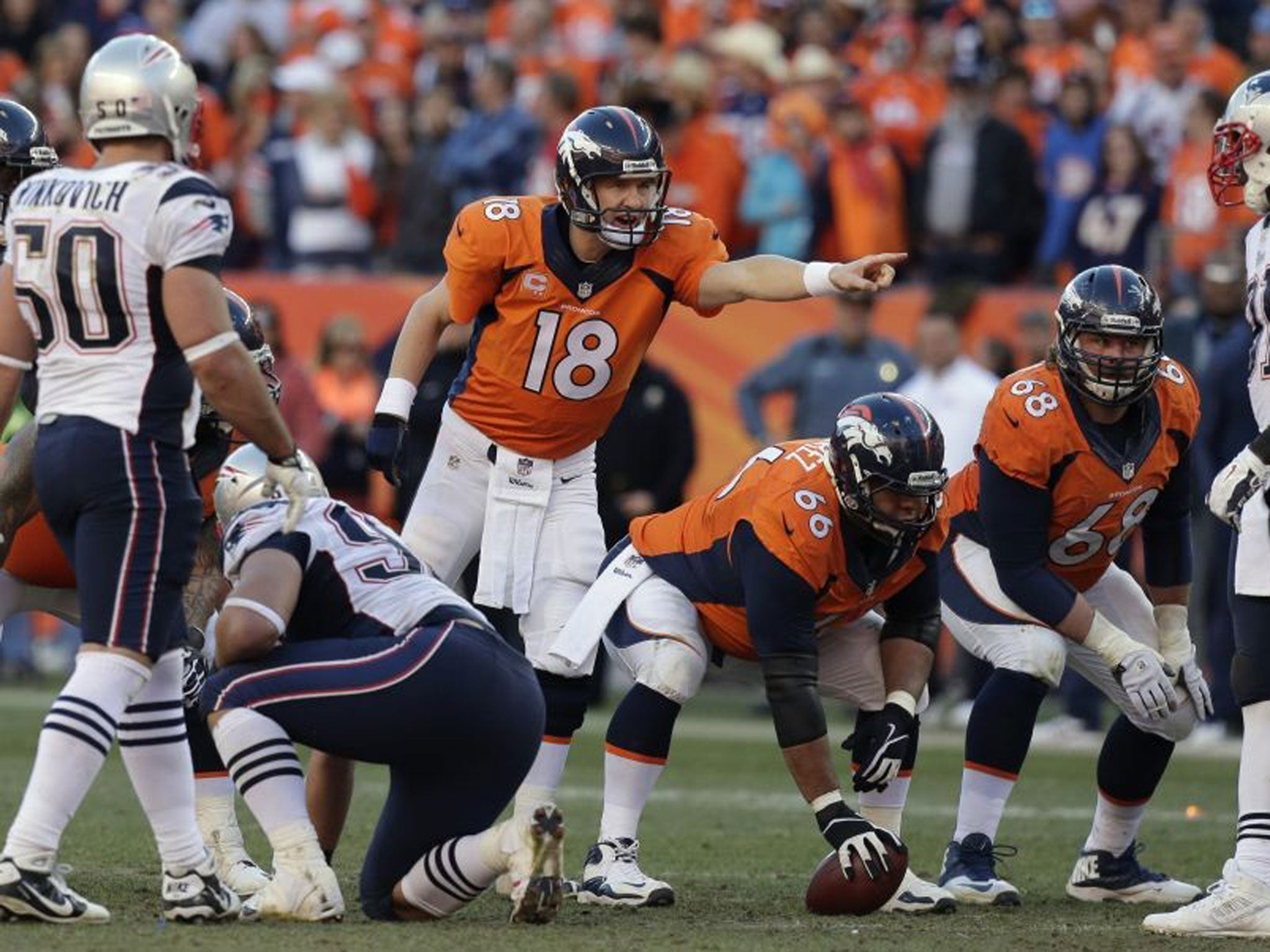Super Bowl 2014: Move over, Wayne Rooney – gridiron's here
With millions of us expected to watch the Super Bowl, and participation here rocketing, is the US sport about to become a British favourite?

The thought of British youngsters having a poster of Peyton Manning on their wall rather than Steven Gerrard may seem far-fetched. But American football is enjoying a meteoric rise in the UK, and across the world more than 100 million people will tune into the Super Bowl tonight.
"We want the NFL to become a top four sport in the UK," NFL UK's managing director, Alistair Kirkwood, told The Independent on Sunday.
"We're the seventh most watched sport on Sky Sports right now, so if we keep doing the right thing, it could happen. I like to think we'll be the next level down after rugby and cricket."
Ambitious, maybe, but the figures speak for themselves. The Super Bowl was watched by more than four million people in the UK last year, twice as many as in 2007. Weekly viewing figures on Sky Sports have also doubled in the last six years.
More people may be watching gridiron, but they're also playing it. Since 2007, amateur participation in the sport has gone up 15 per cent with leagues and clubs emerging across the UK. The British Universities American Football League (BUAFL) had 42 teams before the first Wembley game in 2007 and 2,460 participants; now 75 universities are registered, with more than 4,100 players, coaches and officials.
The key to American Football's growth in the UK has been its increased accessibility, Mr Kirkwood believes, with the NFL expanding in ways that have allowed people to watch and play more of the sport.
"There are very few sports out there that are available on free to air and pay TV," he added. "[Other than the Super Bowl] the Champions League, FA Cup final and the ATP World Tour Finals are the [only] events that do this."
But participation is what shows whether a sport will have a long-term future. Flag football, a five-a-side, non-contact version of the game, has emerged as an effective substitute for the full form – without the safety concerns and equipment costs – and is growing in Britain.
London will play host to three NFL games at Wembley stadium this year, following the two matches it held in 2013. All three games have now sold out – more than seven months before kick-off.
The expansion of American football here is also a reflection of the success of the NFL in the US. The league's total revenue topped $9.4bn (£5.8bn) in 2012, and its commissioner, Roger Goodell, aims to reach $25bn by 2027. For a sport with only one significant continental market, the figures are staggering in relatition to the English Premier League, which, with its massive global following, raked in a total revenue of only £2.36bn in 2011/12.
"The NFL is [investing in the UK] from a position of strength domestically," said Mr Kirkwood. "We're coming off a season where 34 out of the 35 most watched TV programmes of any sort in the US from September through December were all NFL games."
"What's really exciting is that it's not as if the NFL has to play these [London] games in order to be successful. They're doing it with the potential of a long-term future, whatever that may be."
Join our commenting forum
Join thought-provoking conversations, follow other Independent readers and see their replies
Comments
Bookmark popover
Removed from bookmarks